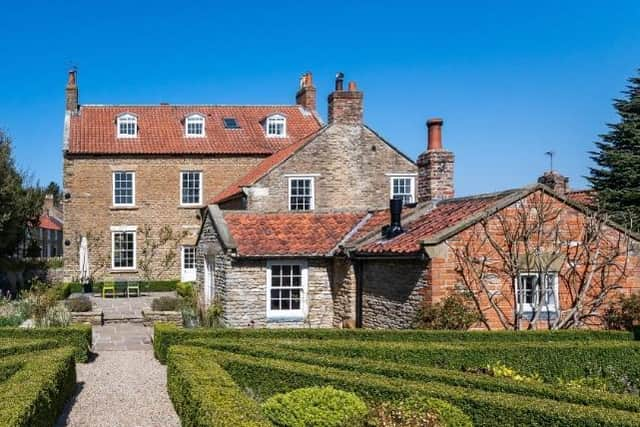Why North Yorkshire homeowners are selling their houses 'off-market' in an increasing property trend
If you could sell your home without a sale board in the garden announcing your intention to the world and in a discreet manner which would prevent your neighbours prying into your bathroom on Rightmove, would you do it?
Playing down the sale of a home to the point where you tell hardly anyone that it’s on the market sounds counter-intuitive, but it is becoming a popular tactic.


Advertisement
Hide AdAdvertisement
Hide AdStill, properties in the £1m-plus price bracket are most likely to sell this way, Hamptons says, which brings us on to the Yorkshire prime market, where every estate agent you talk to says this is the trend dominating their instructions right now.
Toby Cockcroft, owner of Croft Residential, an estate agency specialising in the North Yorkshire prime market, says that 35 to 40 per cent of the properties he sells are available only on a very private basis.
Toby curates a list of potential buyers who are interested in a particular type of property in a certain location. When a suitable vendor opts for off-market, buyers are approached individually, with all emphasis placed on “the human touch”. They are given access to a ‘taster’ of marketing materials including a limited number of photographs, a floorplan and typically, a site plan, through a personalised security code valid only for half an hour – “so they can’t spin them out all over the place. We control what we send out, and this allows us to be confidential, otherwise what we are trying to achieve will be under-mined.”
This personal connection helps Toby weed out unsuitables from the start and reassures vendors nervous about allowing too many people into their home.
Advertisement
Hide AdAdvertisement
Hide AdIt is also, all agents agree, a time-honoured way for the vendor to test if the asking price of their home is appropriate without going public on a property portal.
“Pre-pandemic we sold up to a quarter of our properties privately; now that has increased to nearly 50 per cent, a figure that fluctuates depending on our stock,” says Edward Hartshorne, managing director of Blenkin & Co in York, who says “cream of the crop” properties are best-suited to this approach. It can secure a price with no fear of gazundering; buyers understand that there is no negotiation on the privately-listed guide price, he says, because there is always the threat of launching it on to the open market.
His recent off-market successes include Terrington Lodge in the Howardian Hills, a detached Georgian village house with landscaped garden which sold for £1.6m in excess of guide price, Pasture House, Hovingham, a Georgian property with outbuildings, also in the Howardian Hills, for £1.95m, 34 East Mount Road in York, going for £850,000, £20,000 above the guide price and Hardey House at Cropton in the North York Moors, which he describes as “a superb village house and cottage standing in over an acre with remarkable moorland views – guide price £950,000, sale price £970,000.”
In a world where anything is available on the internet, it’s important to be reminded that the portals – such as Rightmove – are not omnipotent and sales can be achieved without their support, he says: “Social media has helped independent agents because it enables content to be pushed out to a wide market whilst maintaining absolute discretion regarding a particular property’s identity; we whet the appetite of serious buyers but reveal nothing.”
Advertisement
Hide AdAdvertisement
Hide AdEdward believes that “it’s not cricket to charge a full fee” when selling a property off-market. When setting a cost to the vendor for an off-market sale he works on this basis: “Our standard fee under a million is two per cent. Over a million, it’s one and a half. At any point before launching to the website, if we sell it, I charge one per cent.”
He finds that owners of village houses are especially keen on ‘private marketing’ as he calls it, presumably because not much spreads faster in a village than gossip.
However, not all properties are ideal for this method of sale, he warns. Houses requiring full-scale renovation, for instance, should always be made available to the widest-possible audience.
The beauty of off-market of course, is that if it doesn’t work and a buyer fails to materialise, there is always the option of then launching a full-on marketing campaign. However, if it does, the first anyone will know is when the removal van arrives on moving day. And, as Toby points out, unless your nosey neighbours are prepared to wait six months and then trawl the Land Registry to find out, no-one will know what your house was really worth.
